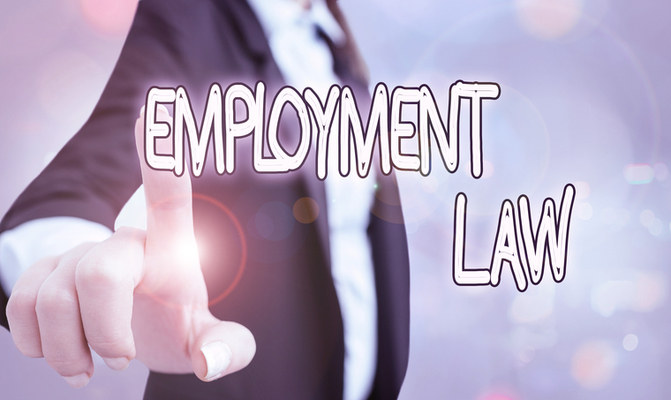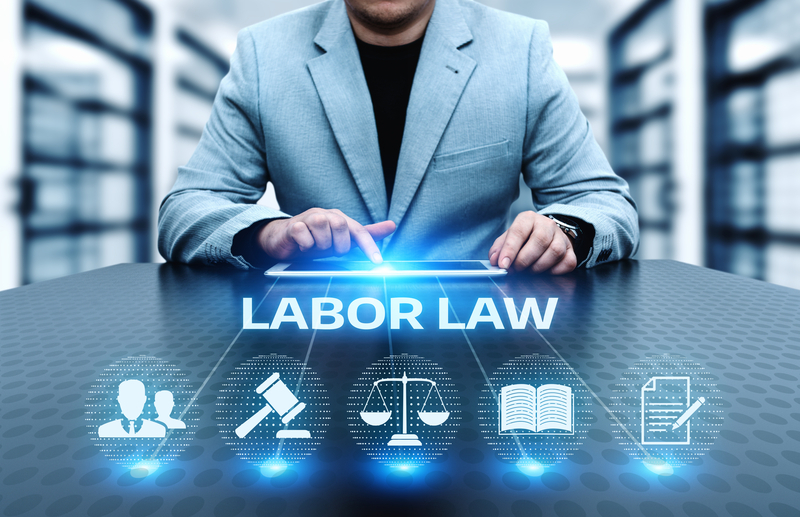
Employment legislation Covers all obligations and rights within the employer-employee connection, such as not just current workers but also former workers and job applicants. Several legal disputes between companies are associated with worker rights and regulations. But due to the complex relationship between employment and the variety of situations that takes place for employment law legal issues such as:
Whether you are an Employer, worker, or job seeker, knowing worker rights is vital to a healthy and working workplace.
Worker All in the Workplace: A Summary
Workers are given privacy at work. This worker directly applies to private possessions, such as handbags or briefcases, storage lockers accessible only from the worker, and personal mail addressed only to the employee. However, workers have some limited rights to privacy in their email messages and Internet use when using the company's computer system.
Other significant Employee rights comprise:
Rights Afforded to Job Applicants
Job applicants also have many rights even before getting hired as an employee. So, these rights include the right to get free from discrimination based on race, gender, age, or religion during their hiring process.
Top of Form
Bottom of Form
By Way of Example, a Prospective employer can not ask a job candidate particular family-related questions throughout the hiring process. Additionally, an employer may not run a charge or background check of an employee or prospective employee unless the employer informs the person in writing and receives consent to do so. However, offenses and other offenses involving job applicants are quite hard to prove.
Federal Regulations Ensuring Employee Rights
You will find several key national laws protecting workers' rights, which apply to workers in most nations unless state employment legislation provides more security to workers. As an instance, many countries have higher minimum wage requirements about the national rules; companies, therefore, need to obey the nation's minimum wage system.
Federal employment law's include:
Permit An Attorney Help Safeguard Your Employee Rights
Employees have a Variety of faith at work, based under the state and federal law. If you think your rights might have been broken in the context of your job, it might be in your best interests to speak with an experienced employment lawyer who'll clarify your alternatives and protect your legal rights.
There was a time when employees were at the mercy of the employers when It arrived into job-related safety and advantages, to say nothing of promotions and hiring. But a push for worker rights gained momentum in the 20th century, causing a string of significant labor protection legislation that countless Americans rely on to this day.
Listed below are eight key national protections afforded to workers.
KEY TAKEAWAYS
1. The Minimum Wage
American workers get a minimum wage due to their work. Since 2009 most public and private companies have been required to cover staff members at $7.25 per hour, though some legislators have attempted to boost this sum. Additionally, the FLSA guarantees non-exempt workers' rights to get time-and-a-half for any overtime they play.
The legislation provides special protections for minors too. For Non-agricultural rankings, it restricts the number of hours that children under the age of 16 may get the job done. Moreover, the FLSA prohibits companies from hiring people under 18 for specific high-risk tasks.

2. Workplace Safety
Minimizing risks from the American office. The laws made several specific security provisions, such as industry-specific guidelines for building, marine, and agricultural tasks. The action also has a "General Duty Clause" that prohibits any office practice, and also reflects a very clear risk to employees.
Responsibility for enforcing the legislation, though state agencies might also have a part in implementing specific provisions. While the protections influence many workers, self-employed people and people working on household farms are one of those exempted in the legislation.
3. Health Coverage
Health insurance a right for employees at most moderate - and large-sized companies. The "Employer Shared Responsibility Payment" provision requires companies with 50 or full-time employees to offer them a minimum degree of health insurance or pays a significant penalty. To be eligible as a"full-time" worker, a person must work a minimum of 30 hours each week on average.
4. Social Security
Supplying disabled and retired Americans using a fiscal safety net. As of June 2020, roughly 64 million people get Social Security checks every month, with a normal sum of 1,514 for retirees and $1,259 for taxpayers with disabilities.
These benefits are financed by a payroll tax, Which Might seem like "OASDI" on Employees and employers each contributes a sum worth .2percent of their team member's earnings up to a maximum yearly volume. Self-employed people bear the complete cost of their taxation, kicking in 12.4percent of the earnings; half of their payment is tax-deductible.
5. Unemployment Benefits
Via a combined federal-state program. States handle payments to the unemployed but need to meet certain national rules when it comes to how they do this.
To qualify for payments, folks must have been jobless for Reasons beyond their control--for instance, a layoff or shooting --and fulfill state-specific requirements. Typically employees are entitled to get benefits for up to 26 weeks, even though obligations are occasionally extended during periods of financial chaos.
While less generous as unemployment obligations in certain European nations, the U.S. unemployment program ensures Americans possess at least a couple of months of safety when they temporarily leave the workforce.
6. Whistleblower Protections
A patchwork of national statutes helps shield whistleblowers who report their company For violations of law. Whistleblower protections are usually built to other parts of the legislation that govern a business. By way of instance, the Clean Air Act protects individuals who emphasize violations of environmental legislation, and the Consumer Product Safety Improvement Act protects people who find unlawful manufacturing coverages.
Protecting the rights of workers, who might fear job loss or other reprisals if they talk. Employees who believe they've suffered retribution for coverage firm offenses should file a complaint with their regional OSHA office within 30 days of this episode.
Employees have the right to create a Whistleblower complaint if their office is dangerous throughout the COVID-19 pandemic.
7. Family Leave
Legislation in 1993. Because of this, qualified employees are given up to 12 months of unpaid leave annually should they opt to remain home in the aftermath of the child's birth or birth or in cases of serious personal or family member illness.
To get FMLA benefits, an Individual must have already been with the firm for at
8. Employment-Based Discrimination
Second for social justice in the USA, particularly when it came to employment. Title VII of this Act made it illegal for companies to discriminate based on"race, color, religion, gender, or national origin." Justice Neil M. Gorsuch, who wrote the opinion, said: "Now, we have to decide whether an employer could fire someone just for being gay or bisexual. The solution is apparent. An employer who fires someone to be gay or transgender flames that individual for actions or traits it wouldn't have contested in members of another sex. Sex plays a crucial and undisguisable function in the conclusion, what Title VII forbids." 17
Among other national laws that protect against office inequality
The Main Point
Nowadays, American workers appreciate numerous legal protections made to Provide a minimum amount of revenue and protect them from danger at work, among other guards.
Compete Risk-Free
Set Your trading Skills to the test using all our FREE Stock Simulator. Compete With tens of thousands of Investopedia dealers and trade your way to the very best! Submit Transactions in a digital environment before you begin risking your money. Practice trading approaches so That if you are prepared to enter the true marketplace, you have experienced the clinic you need.
